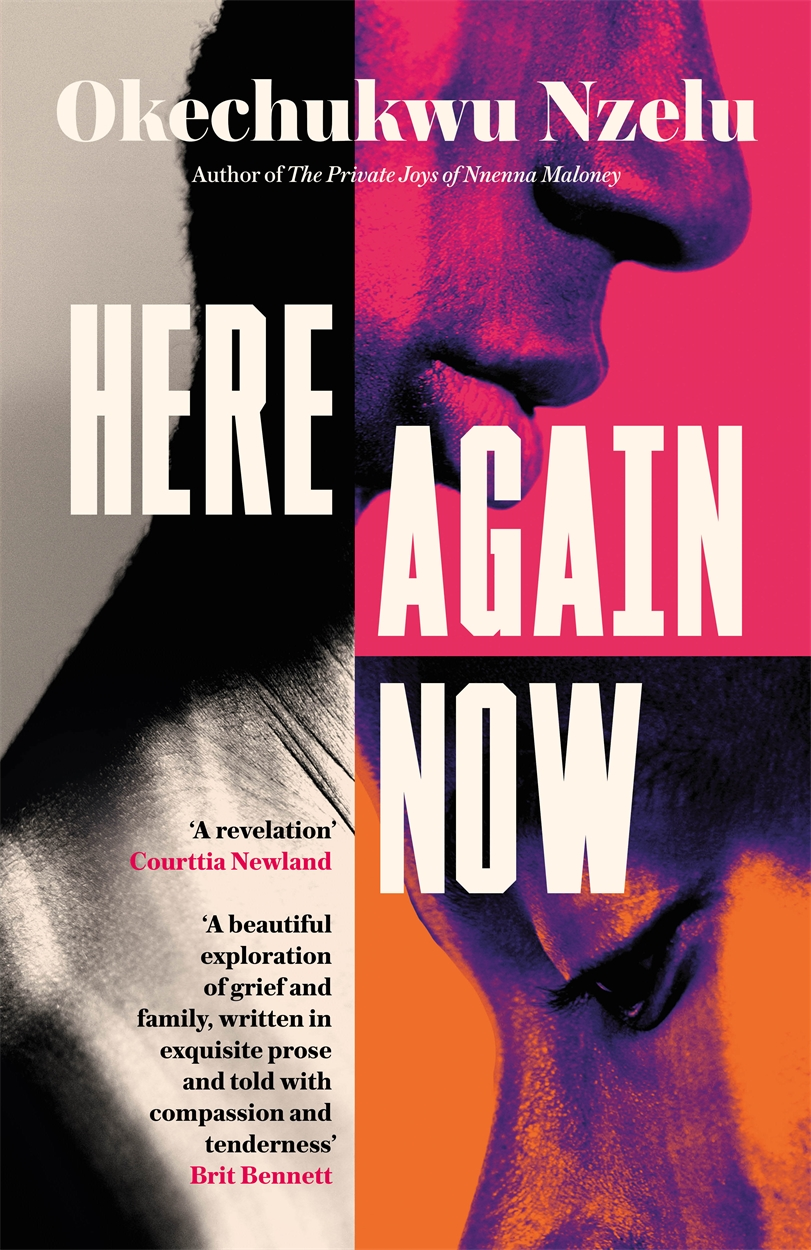
Ekene always heard the music first.
Achike gave him something different every time. Some days, Ekene would open the front door and there would be Samuel Coleridge-Taylor before him, in Achike’s hands. There might be Elgar, or Chopin, things Achike had taught himself, heard somewhere and reined in to his own keen fingers. Reined in to himself and then played out, wild again, like the first time it was ever played. Or he might come home early from filming and Ekene would walk across the courtyard to an improvisation on something by Frank Ocean, something Achike had listened to on the way home. Something that made Ekene think of fresh air and cool evenings after long, hot days.
Something of this was for Achike himself. He worked too hard, these days, and he loved to leave hard work and bother behind. He loved to step off the tube and go, step by step, to his home, and close the front door, and hear the busy world continue, just outside. He loved this feeling of safety, and so some of the pleasure in his music was for him.
But what he did was not for him alone. His music was like offering joy; all his training and listening, and the hours of practice were like joy, plated up and pushed across a table to a smile. Achike loved to play, and think how his playing could be heard in the street. He didn’t care if the neighbours had questions, or might complain in the morning. They might, and sometimes did. That was for them.
But Achike . . . he might make Ekene happy with a song. He might take music that had been two pieces and make them one. He might loop them both together and play them out, to please Ekene. Two favourite things of his, noticed and known and offered. Or he might fly into Heathrow a week late, cursing the director all the way home, and let himself into the flat at one in the morning, tiptoeing in so that Ekene woke to the sound of him humming a new piece of his own making, woke to the sound of some creation pouring into his ear, as though Achike were feeding him a dream.
And how he fed him. Ekene often dreamed about Achike when he was gone. He was gone too much. Ekene always thought to be happy for his friend in his success, and to think of him doing great things, but sometimes it was hard. When it was hard for him, he thought about the way good light might hit Achike’s face in some perfect scene, or how Achike might inspire someone to write some new thing charged with beauty, or perhaps only to change a scene, knowing it could be better with Achike in it. Sometimes it was enough just to think of Achike, to think of him smiling in good light.
Ekene was rewarded for his faith. He would wait for Achike as long as he could, but the trains were late, and filming ran on, and he sometimes fell asleep before Achike arrived at the big flat with its large windows for the fresh, cold light of the day. Ekene slept, and dreamed of his great friend in the world, and of his friend coming near while the world kept its distance just outside. And sometimes, after dreaming, he woke to find Achike next to him in bed, barely awake, still singing under his breath. Had he sung all night in readiness?
*
Over the past three years, Achike had spent more and more time away on set, and less and less time at home in Peckham. His career was taking off at speed, and time with Ekene became increasingly precious. Shakespeare productions in pubs with Ekene and their friends fresh from drama school became low-budget independent films with up-and-coming directors, became walk- on roles in bigger productions. He played a boxer with bipolar disorder; a longshoreman who hadn’t seen his children in weeks and who had exactly eight words to say about it. The role of a plucky juror in a historic trial won him praise from critics. Then there was silence for a couple of months, and Achike wondered if everything that would be, had already been and gone.
Then, one day, Achike received a call from Julian Trent, an agent with a client roster so famous, the first few moments on the call had silenced Achike. Achike had been at his desk in the co-op agency, chasing a potential lead for another of the actors, when Julian told him he’d seen his reel and outlined Achike’s future for him in bold, ambitious terms.
First, Achike would have to quit the co-op agency and sign with Julian. Then, everything he had wanted would be his. The world, Julian said, was waking up to the possibility of young black men playing a wider range of roles than ever before, and he knew that Achike Okoro had the range for whatever was needed to build a career that nobody would forget. If he trusted Julian to make it happen, it would.
Two years later, Achike had filmed minor roles in two major Hollywood films: one, a period slave drama (for which Julian was slightly apologetic), the other a tragic family epic, whose screenwriter was nominated for three major awards.
Then, this year, more good news.
‘You’ll like this one,’ Julian had said. When he was this excited about a project, his voice lost its weary breathiness and became somehow sharper, taking on a kind of shimmering quality that Achike could almost see through the phone.
Here Again Now was an almost-big-budget film with a small cast. Its screenwriter-director, Mercy Oruche, had a new degree in film direction and a story to tell: a young doctor named Helen Izundu is murdered by police in New York City, but after her death she reincarnates multiple times in Nigeria. There, in each new life, Helen – now Adaeze, now Grace – meets people who help her shape the country’s destiny and her own, before returning to a life in America and launching a historic dissolution of police brutality. As the film ends, she is about to be reborn again to a new life, new possibilities.
‘Oruche is a visionary,’ said Julian. ‘Her work is unparalleled. There’s nobody in film who’s doing what she’s doing. And you know – I don’t say that often.’
‘No,’ said Achike, ‘you really don’t.’ Like many father figures, Julian was hard to please. He could advocate fiercely for ‘his own’ (he never called his clients ‘clients’), but he would have only the best of things. Those best things he wanted urgently, but he was impatient, even scathing, of those whose talent he deemed less-than. Achike had heard Julian dismiss actors and directors as ‘blips on the radar’. Julian had been known to write off creatives after a single trailer; more than once, Achike had wondered what Julian would say about him if his own career ever stalled.
The doubt made Achike work harder. Julian had quickly become much more than an agent to him; Julian saw greatness in him, advised him, kept him away from bad choices. And, though his career was on the rise today, Achike lived in fear of the day when the roles and the money would slow down or stop coming – a fear that was not born out of love of acting, but out of a need for something like love. He wanted to keep his work coming; he wanted to keep Julian smiling down on him. When he heard of the young director who could win Julian’s approval so resoundingly, Achike knew he had to work with her.
And then there was his real father. Chibuike had always criticised Achike for letting white Hollywood subsume him into itself, and Achike had been waiting for an opportunity to prove him wrong. When he saw his father’s culture in the script – names and locations he knew his father would recognise and approve of – he knew it was the right thing. It was from traditional Igbo beliefs that the idea for a film about reincarnation had sprung.
Only in a corner of Achike’s mind was there any pride in himself for being a part of a project he believed in, or for bringing his father’s culture to the world; only dimly did he understand that his work on this film was a profound act of love, and that through his work he was joining a lineage of storytellers that reached back through generations, from one life to another, stretching back endlessly through time. Achike could present himself on screen as firm, bold, persistent, capable, but he was always little to himself, barely a man, only a little man. He hardly knew that he was connected to something infinite and strong.
‘I think Oruche’s work has a magnetism to it, you know,’ Julian mused, on the phone. He had a way of speaking almost to himself, only allowing the listener to be present. Achike was completely still, listening. ‘She’s doing something transformative. Her work is really in the world. This is where cinema is, now. And where it needs to be. You know, I really believe it’s the kind of film that audiences all over the world will fall in love with.’
‘I want in.’ Achike was almost breathless. ‘I want to be a part of it.’
‘You need to be part of it,’ said Julian, plainly. ‘This is where you go next. It has to be.’
There were some weeks of preparations. There was practice to be done, and research. There were exercises and drills. Achike sent in a tape of himself, and then his in-person audition came next. For this, he stepped into a small, plain,soundproofed room with no air conditioning. Julian had prepared him well, as had Achike’s prior films: he showed an earnestness, a directness and a vulnerability, which were his own, and which became the character’s.
Then there was the screen test: the director and producer wanted to see the chemistry Achike and the female lead would be able to offer. Achike would be acting opposite an American named Dacey Douglas. She was shorter than Achike, who was just over six foot two, and very slim. She was from California but, when the script called for it, her Nigerian accents were as Achike’s mother’s and father’s. She did not seem afraid, as he was. Perhaps she was afraid.
It was upon him to be the man now. The director was watching, and she wanted to see what love could look like. Achike tried to imagine how he might love Dacey, in another life. He might be a different man, then, and tower over a woman, and not long for a man to hold him. He might watch Dacey’s dark eyes shimmer under lights and feel an urge to hold her, to envelop her in himself. That was the thing, wasn’t it? That was what they wanted. He tried to imagine reshaping the love he had for Ekene, and giving it to a woman to hold.
Achike stepped into the shape of a big man. He pushed his little self away, and gave the man they wanted. He did it for the film, and for his father in his mind, but how strange it was to hear his whole world carry on, only just inside. How strange, and sad.
He was cast as the male love interest for the film. And, because the film kept its cast small by doubling, Achike would play Helen’s husband and her extra-marital lover – and, once, her adversary – across multiple lifetimes. He would be the one to help Helen evolve into one woman after another, evolving himself as the story was told.
Continue reading here.
BUY Here Again Now: Amazon | Bookshop
*******
Excerpt from HERE AGAIN NOW by Okechukwu Nzelu, published by Dialogue Books. Copyright © 2022 Okechukwu Nzelu.


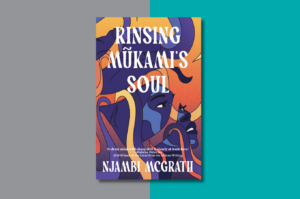
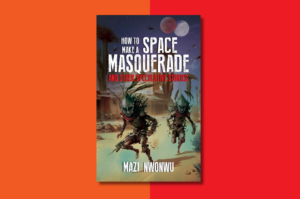
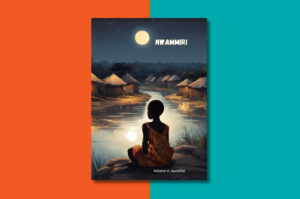

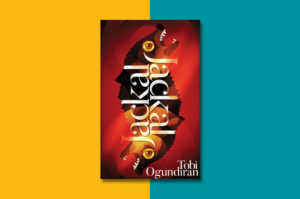
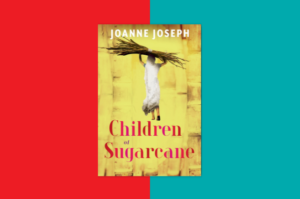

COMMENTS -
Reader Interactions